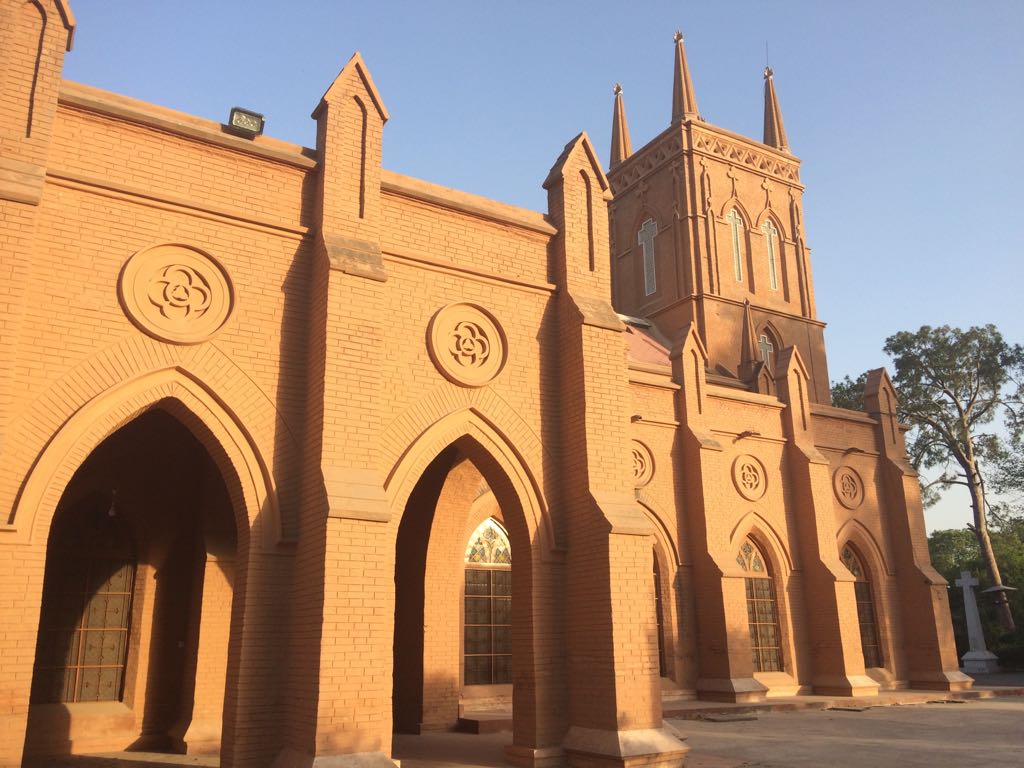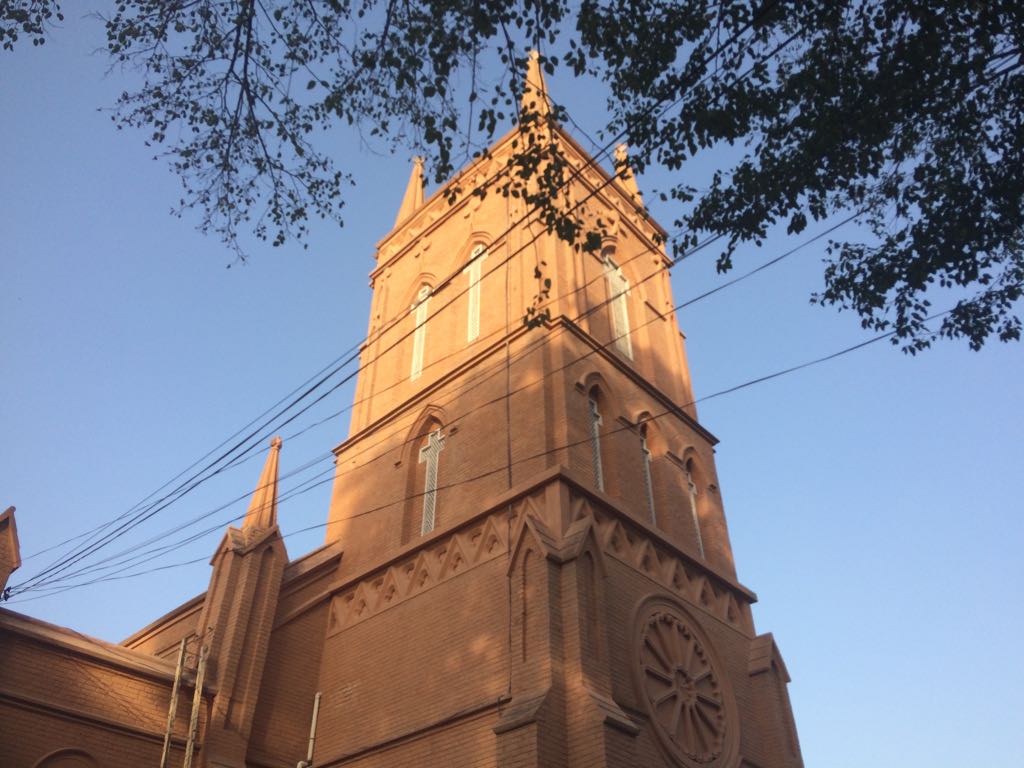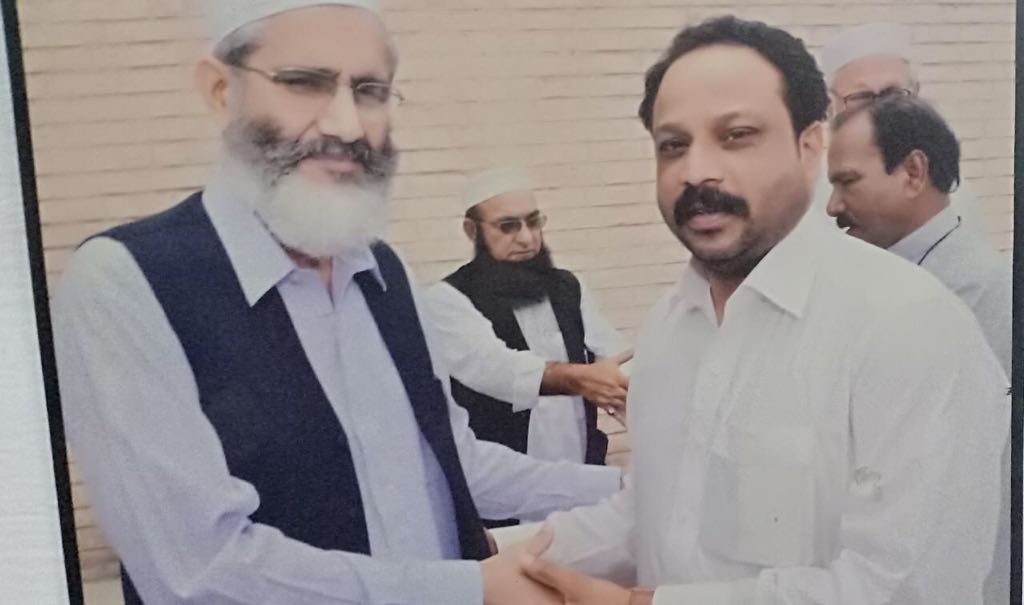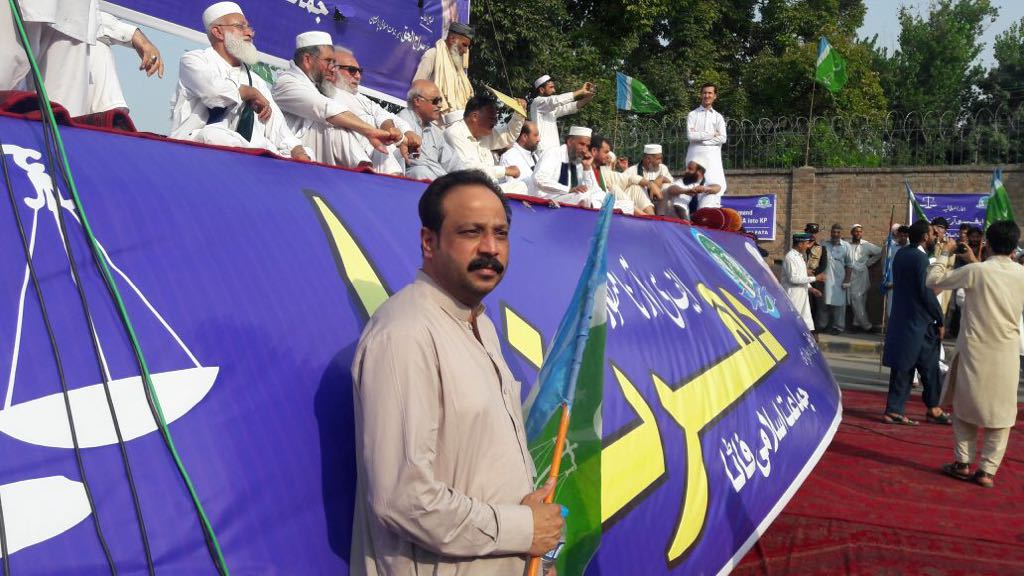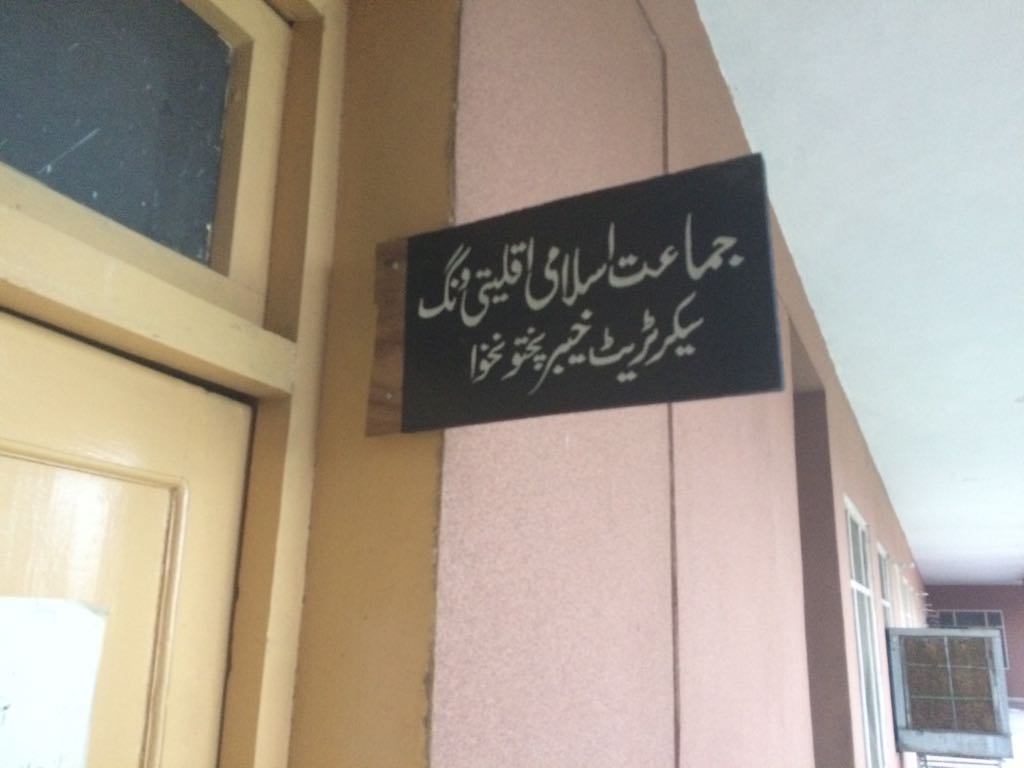
Among the ‘believers’
Non-Muslim ‘electables’ of a ‘party for Muslims’
Many were dead set against idea of minorities’ wing
In 2000, Pervaiz Masih was informed he would be contesting local government elections in Peshwar’s Town III from the platform of the Jamaat-e-Islami (JI). Masih emerged victorious after securing 172 votes in a constituency where the party traditionally polled around 27-35. Today, he heads the JI Khyber Paktunkhwa Minorities’ Wing, peculiar given the Jamaat’s historic reputation as the vanguard of the Islamic revolution.
While Masih does have reservations on minorities not enjoying an equal footing in some areas, he is effusive in his praise for the JI. Beholden, he said, remain him and his coreligionists to the party for letting them forge successful political careers on merit alone.
“I had an audience with (then) Jamaat Amir Qazi Hussain Ahmed in 2002. He told me my ‘trial’ was over and I was being elevated to the National Assembly. I was elected MNA after being awarded a party ticket by president Ahmad Shah Noorani,” the JI K-P Minorities’ Wing chief told The Express Tribune.
Masih claimed then premier Zafarullah Khan Jamali tried his best to lure him to the treasury benches in vain. “His offer of Rs30 million in cash and chairmanship of the minorities’ affairs committee was declined. I have always remained faithful to the Jamaat.” Pakistan Muslim League-Quaid (Q) leaders, current and former, remained unavailable for comments despite repeated requests.
St John Church in Peshawar is the oldest church in the city. It was established in 1851.
Masih said no other party posed a threat to the JI’s minority candidates on account of sound party strategy. “The Jamaat had 200 minority candidates elected in the 2015 local government elections. Its tally was higher than that of any other party in K-P.”
“In 2005, Ahmed tasked me with getting at least four to five minority candidates elected in local government elections to further a more inclusive image of the party. I told him the JI could fare much better than that. Over two dozen were elected councillors. Another 15 emerged victorious as town and district members,” he said.
Non-Muslim party members worked as a group under Masih till 2007. Later, a Peshawar-wide minorities’ wing was established. Gradually, the wing expanded to include 17 districts. In 2016, a province-wide wing was constituted. Masih was elected president and Javed Gill general secretary.
“Contrary to popular belief, the Jamaat is extremely liberal. Our feedback was solicited on the Hasba Bill. The minorities were extremely happy,” Masih said.
Not everything, however, is hunky-dory. “Recently, a document on minorities was formulated without our feedback. All provincial and district amirs have been provided new vehicles. Non-Muslim members were ignored,” he said.
Masih also claimed former JI heavyweights were not very receptive since they hailed from areas with virtually no minorities. “They do not pay much attention to our problems,” he said.
Jamaat naib amir Iqbal Khalil said many were dead set against the idea of the party floating a minorities’ wing. “It was argued that the JI was a party of Muslims for Muslims. Resistance dissipated after it was pointed out that ideologue Maulana Maududi himself worked alongside non-Muslims over the party’s formative years.”
In the early 2000s, the party barely had any non-Muslim candidates for reserved seats. Today, there’s been a sea change. “We have more aspirants than seats,” Khalil told The Express Tribune.
The party’s minority cadre stands at 2,500 in K-P. Nationwide, the figure hovers around 15,000. “Custom membership forms are available for non-Muslims looking to join the party,” the naib amir said. Khalil also elucidated on the Jamaat’s peculiar two-tier membership structure. “Ordinary membership is available for everyone. The JI has over one million such members. Rukniyat or full-membership, on the other hand, is bestowed on the select. The Jamaat only has 42,000 rukns nationwide,” Khalil said.
Speaking about the overrepresentation of Christians vis-a-vis other minorities in the JI, Khalil said it was indeed true that the Jamaat had many Christians in its fold. “While Hindus constitute the nation’s largest minority, the community is concentrated in Sindh. Christians, on the other hand, can be found nationwide.”
Questioned on the apparent contradiction between the JI being a firm supporter of the nation’s blasphemy law and counting many Christians in its cadre, Khalil said it was prone to misuse. “This can be done with anything. Some cases (of blasphemy) are false, others real. Mob justice, however, is no solution.”
JI Peshawar Minorities’ Wing president Daniel Samuel described the party’s attitude towards non-Muslims as “extremely positive”. “The Al-Khidmat Foundation has been distributing food among needy Christians every Christmas and Easter over 15 years.”
Samuel also spoke about how the NGO had played an active role in the wake of the 2013 Peshawar church bombing. “The community was incapable of helping itself. Over a hundred were killed. Another 250 were injured. Al-Khidmat was god sent. Volunteers helped take the injured to hospitals and bury those killed,” he said.
Story, pictures and videos: Riaz Ahmad
Video editing: Narendar Khatri and Sitara Arshad

